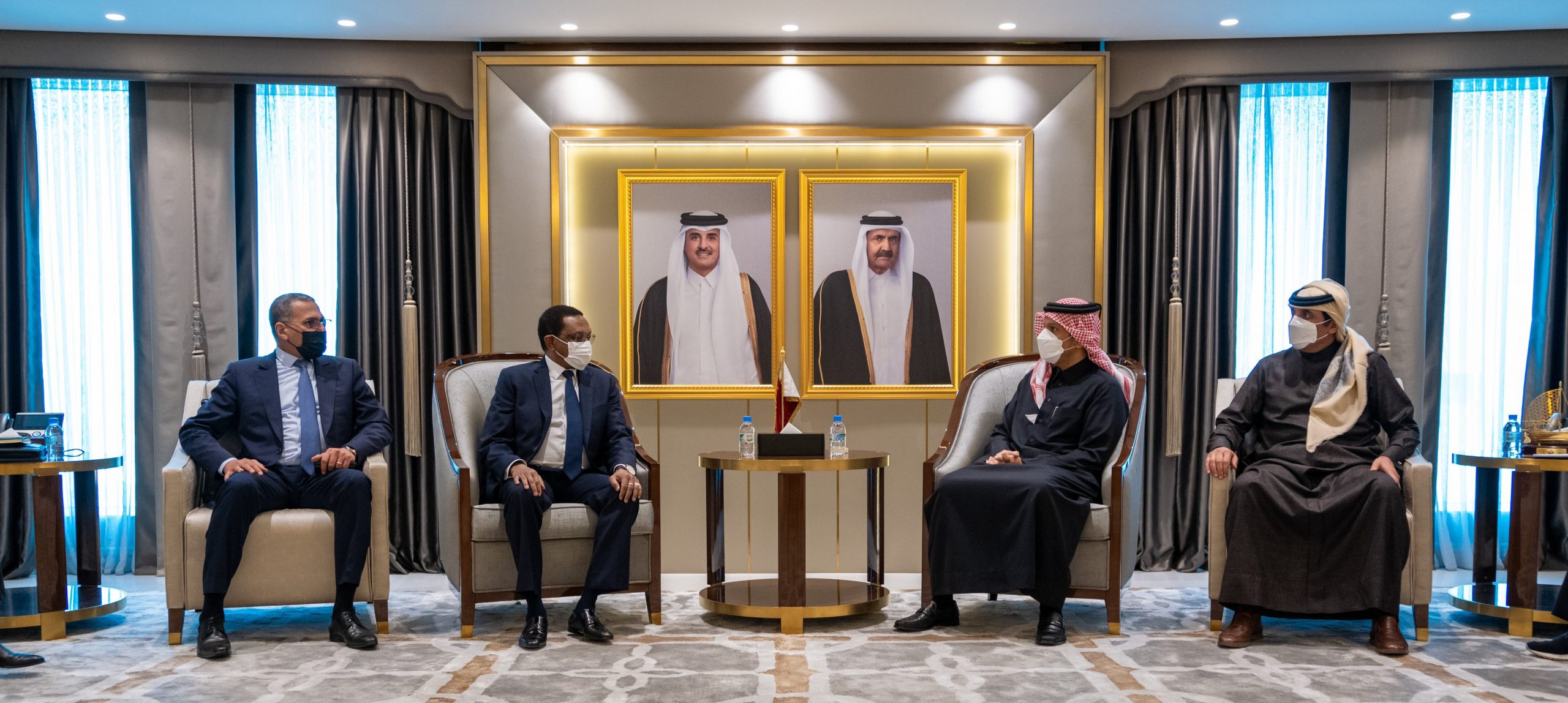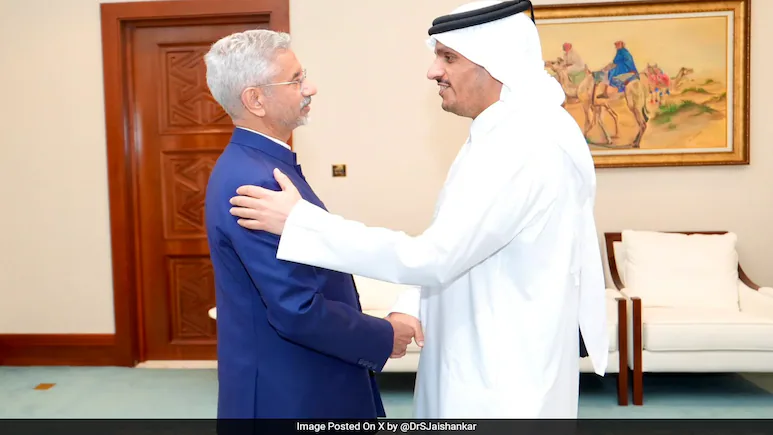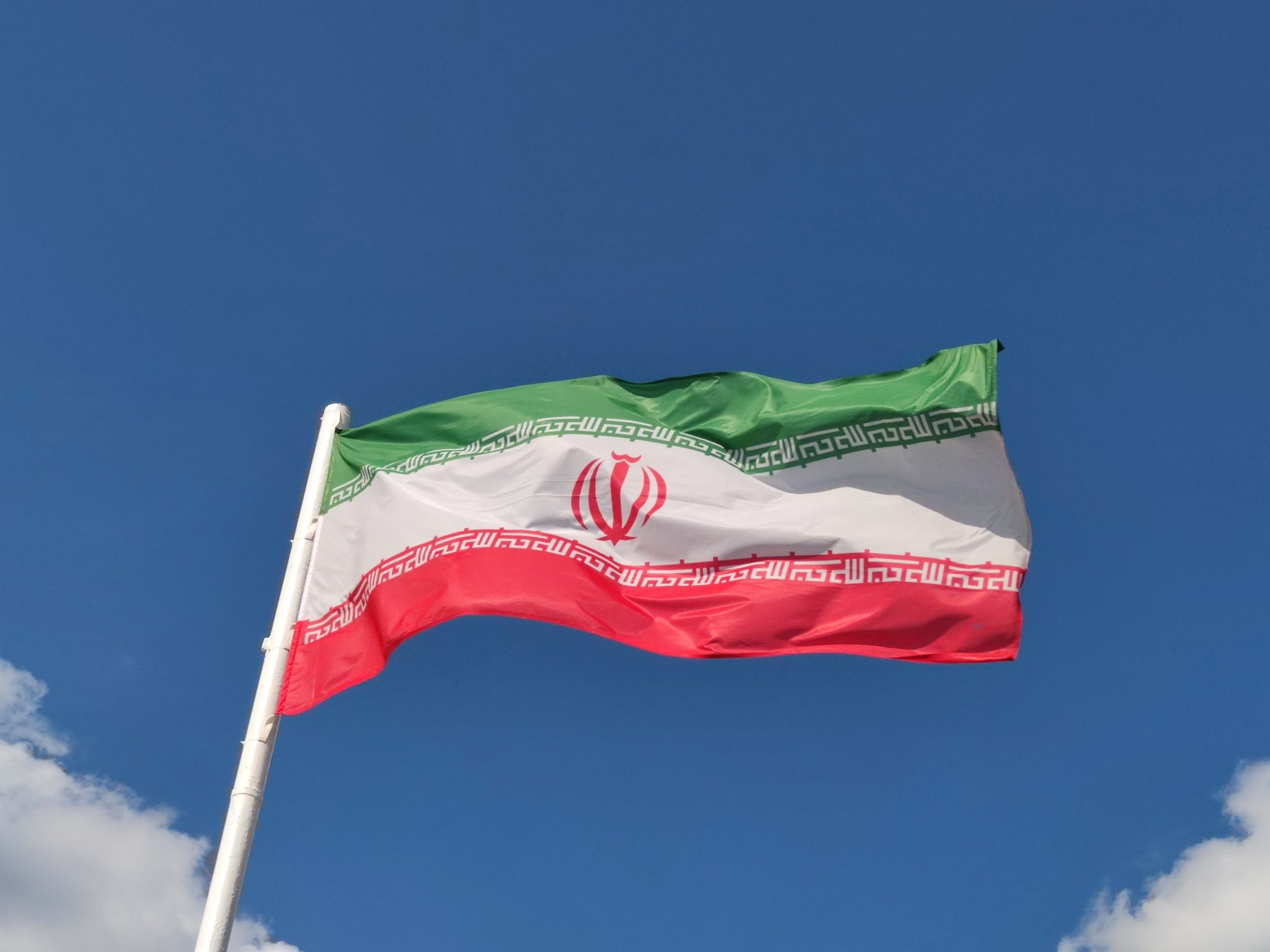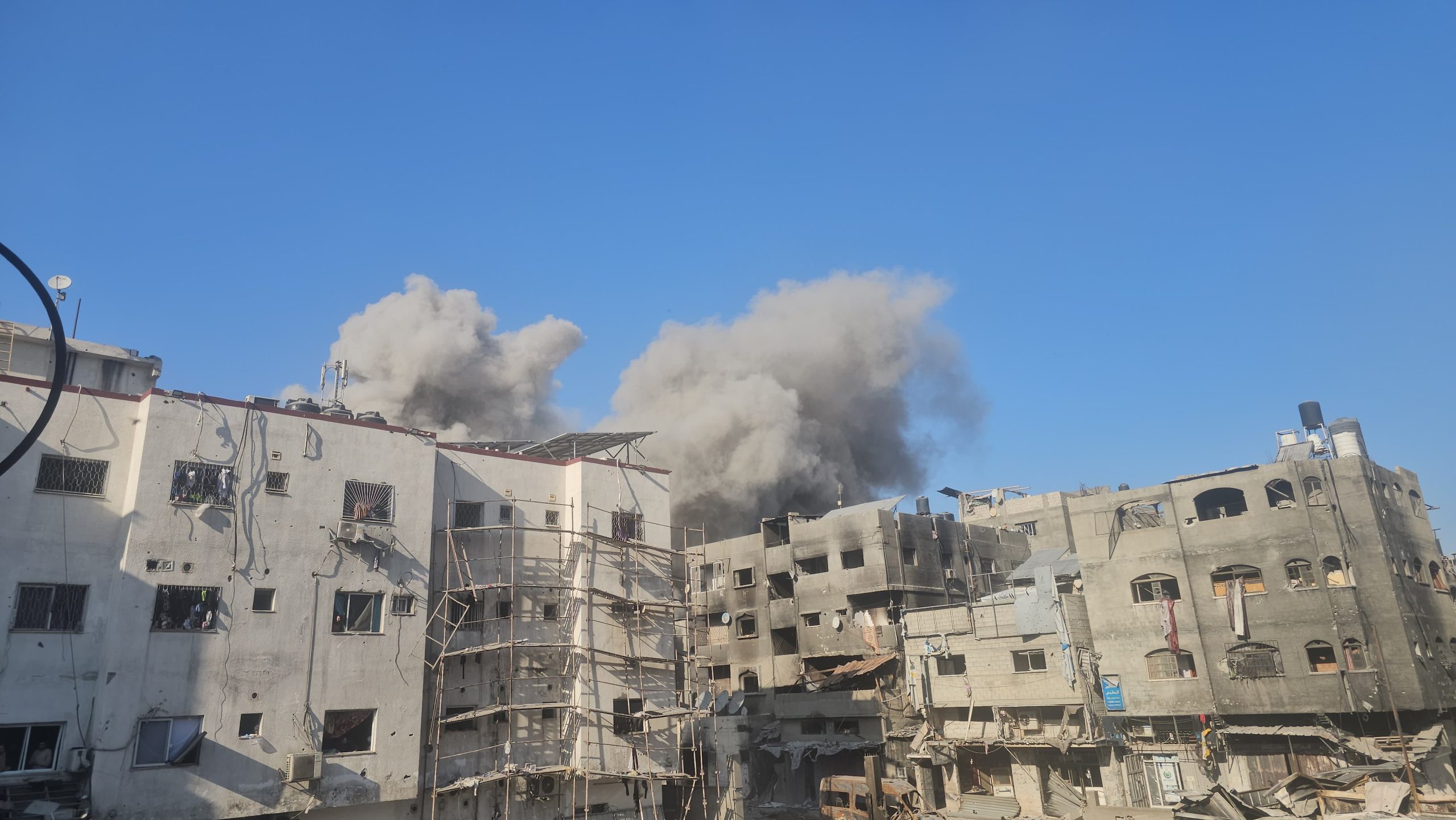A source with knowledge of the talks told Doha News that the first meeting between the Chadian government and the armed opposition is expected to take place within the coming weeks.
Qatar’s Deputy Prime Minister and Foreign Minister Sheikh Mohammed bin Abdulrahman Al-Thani met with his Chadian counterpart Mahamat Zene Cherif in Doha on Sunday ahead of conflict-resolution talks sponsored by the Gulf state.
The meeting between the two senior officials is the first to take place since an announcement by the Head of Chad’s Transitional Military Council, Mohamed Idriss Deby, regarding Doha-facilitated political negotiations aimed at resolving the current crisis in the African country.
Cherif is currently leading the Chadian delegation in Qatar to prepare for the upcoming dialogue, scheduled to take place in Doha.
“During the meeting, they reviewed bilateral cooperation relations…as well as efforts to organise the meeting between representatives of the Transitional Military Council in Chad and the Chadian armed groups,” read a statement by Qatar’s Ministry of Foreign Affairs (MOFA).
The ministry also said that the foreign ministers discussed “the latest developments in mediation and reconciliation efforts related to the comprehensive national dialogue and achieving national reconciliation”.
On Saturday, Deby revealed to Al Jazeera that the political talks come after Qatar’s Amir Sheikh Tamim bin Hamad Al Thani agreed offered his country’s help to all Chadian sides in order to reach a political resolution.
A source with knowledge of the talks told Doha News that the first meeting between the Chadian government and the armed opposition is expected to take place within the coming two weeks.
However, there was no specific date mentioned.
It also remains unclear whether the meetings would replace the national reconciliation talks, a dialogue separate to the Qatari mediated one, that is currently scheduled to take place on 15 February, and which is aimed at restoring civilian rule.
Deby expects the upcoming talks would result in peace in N’Djamena as well as the disarmament and return of Chadian militants from Libya to their country.
Meanwhile, another delegation is holding talks in Khartoum with armed parties to discuss their participation in the Doha meetings.
The negotiations would take place following months of tensions between the Chadian government and armed groups, which intensified following the killing of former President Idriss Deby, on 20 April last year.
Qatar’s mediation efforts
Qatar’s latest mediation role in Chad is set to further improve relations between Doha and N’Djamena after the latter severed diplomatic ties with the Gulf state amid the 2017 GCC crisis.
Chad had accused Qatar of seeking to destabilise the Central African country through its neighbour, Libya. In turn, Doha said N’Djamena was taking part in a “political blackmail against the State of Qatar”.
Qatar’s mediation role in conflict-ridden Chad goes back as far as 2009, when it sponsored the signing of the “Doha Accord”—also known as the “Darfur agreement”— between Khartoum and N’Djamena.
The Doha-facilitated agreement, co-sponsored with Libya, was signed amid tensions between Sudan and Chad in 2008, with both countries accusing one another of supporting insurgent groups and rebel attacks inside their territories.
Beyond Africa, Qatar has a long history of conflict-resolution between warring factions in various parts of the world, most notably its recent role in Afghanistan.
After the Taliban took over Kabul on 15 August last year, Qatar ensured to continue holding talks between the militants and all segments of the Afghan society.
It also continued to facilitate talks between the Taliban and the US and sponsored the Doha Agreement between the two parties in February 2020.
_______________________________________________________________







